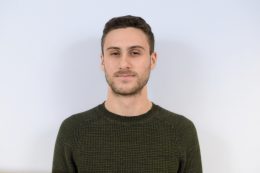
When was the last time you built something?
I don’t mean the hammer-and-nail kind of building, but it could be that too — when was the last time you made something with your hands, took what was at first only the stirrings of imagination in your mind’s eye and then made it real in the world? When was the last time you built anything — a table from gathered wood, a fire to keep you warm, a story upon a blank page?
The modern era is an age of abstraction. We deal more with models of reality than we do with physical reality. This has been a longtime coming in industrialized societies. With the transition from rural life to the cities, from trade apprenticeships to cubicles, we’ve discovered that building things doesn’t sell like it used to. We have mass media, factory farming and robots that can do that stuff better, anyway. But in this journey we’ve lost something deeply important — the ability to connect with the physical world in a real and meaningful way, to make our mark on it.
I suffer from anxiety. Often it manifests as a feeling like an electric shock, like the world is out of my control; I am lost in it. Recently, I’ve started to realize that many of the moments when I am most at ease, when the calm overtakes the storm, are when I am cooking a meal for myself or for friends. I’m not particularly good at it, but that doesn’t seem to matter. It quickly dawned on me that I was spending hours cooking in the kitchen, even when I did not need to. I found that I preferred the process over the output, the means over the end — in other words, I preferred standing above a hot oven over eating what I had created.
What I realized was that by cooking — by taking these disparate ingredients and making something with them — I was exercising my control and my agency. The world, which seemed to be so chaotic and foreign to me, now contained within it something that I had made, which could not have existed if not for my hands, and was thus made familiar and less frightening. In a world where we are so disconnected from physical reality and from each other, that sense of being needed is intoxicating. And so I hunched over the stove fires.
I write about my grandparents often in this column, and for good reason — they are my heroes, and they’d be yours too if you knew them. With nothing except their names, their dignity and their hands, they built a life for themselves out of the ashes of the Holocaust. My grandmother is a seamstress of boundless capability; my grandfather a jeweler of stunning talent. As a young boy, I would sit and watch my grandfather take fine strands of gold and weave intricate patterns, each piece of art a testament to his eye, his dexterity, his imagination. He took the pain he had been dealt, the control he had lost over the fate of his family and built a world all his own. With his hands he built a life for himself and made his mark on the world, he and my grandmother. They made my life possible. And though they suffered greatly in this world, it never stopped them from building within it.
We spend much of our time in this world dwelling in the realm of the abstract — in screens and information. We lament worlds that could never be. We spend plenty of time imagining the worlds that could be, but we spend less time taking control of reality. Many young people have grandiose ideas about changing the world, but these too are rooted in the realm of the abstract. Real history is made on the ground, in your homes and in your communities. By building beautiful things, by building meaningful relationships, by building yourself into a better person — a person who is more capable of empathy and virtue, who therefore commands dignity and respect.
That is the way we ought to be. Our attachment to the abstract has given us plenty, but we have also attenuated our connections to the world in which we live, and we ignore the majesty of reality at no one’s loss but our own. We have a choice, however, to take the necessary steps to re-engage with a world that has since become a stranger to us. So I’ll ask again.
When was the last time you built something?
Aaron Bondar is a junior double-majoring in economics and political science.


